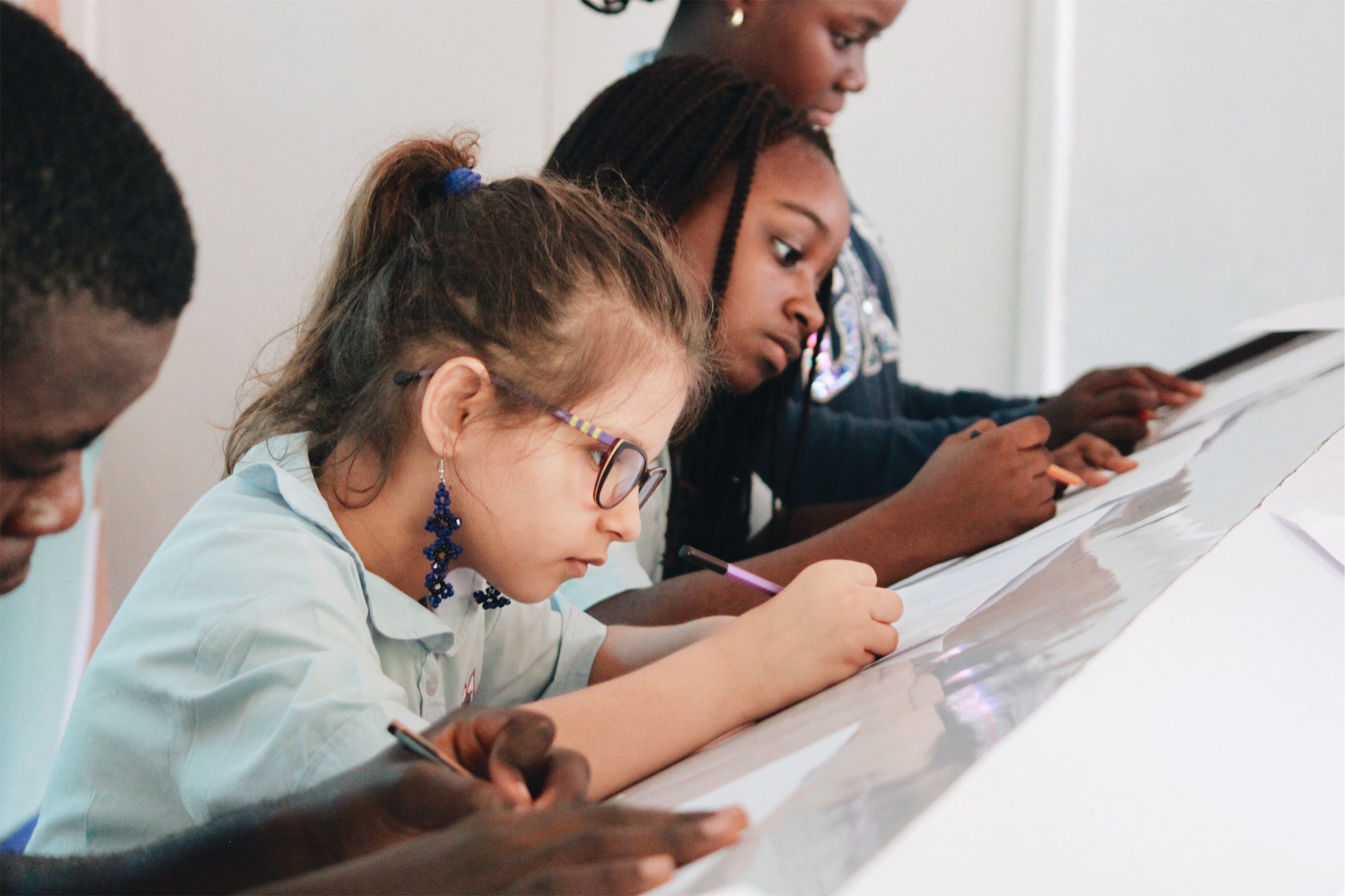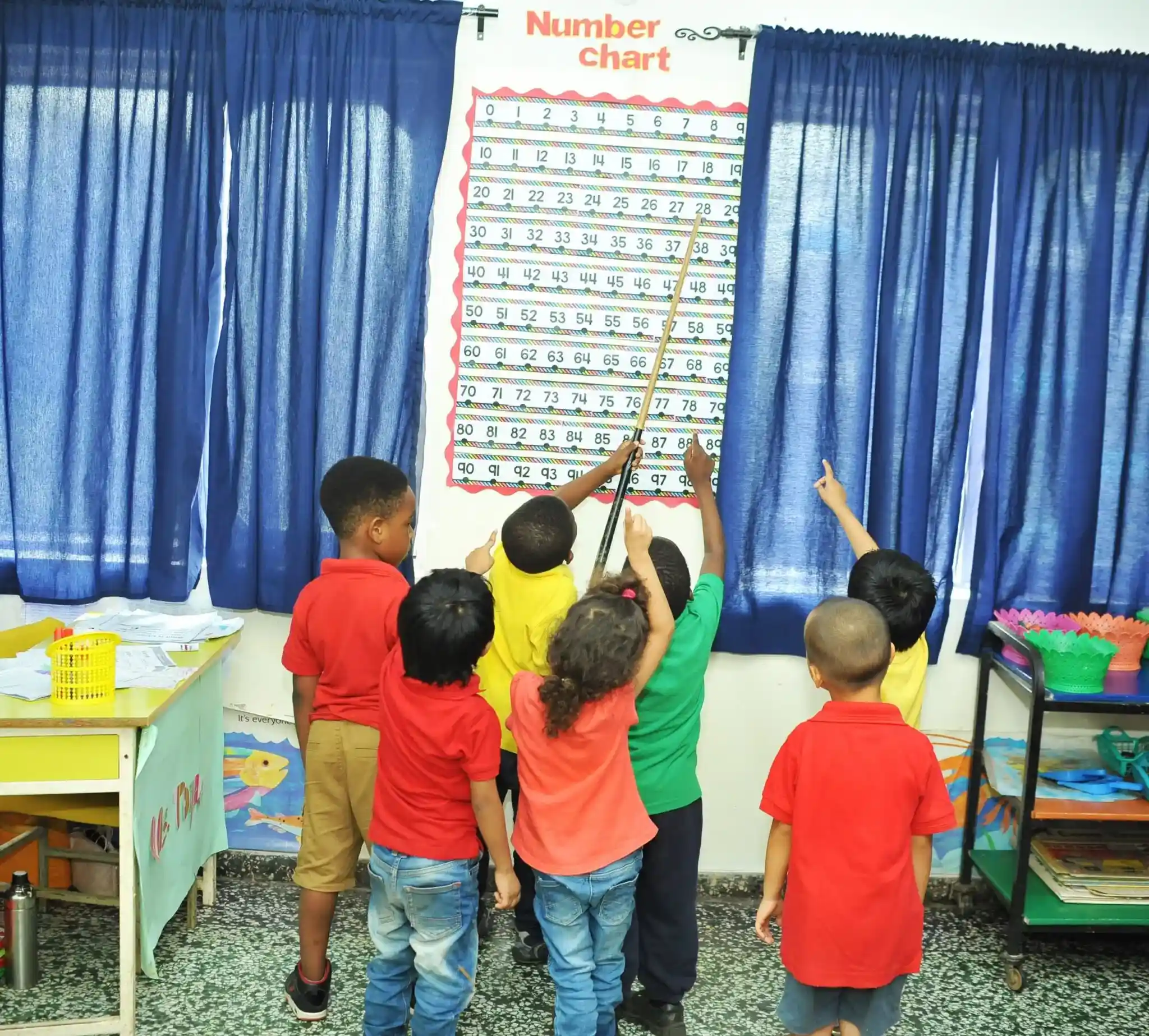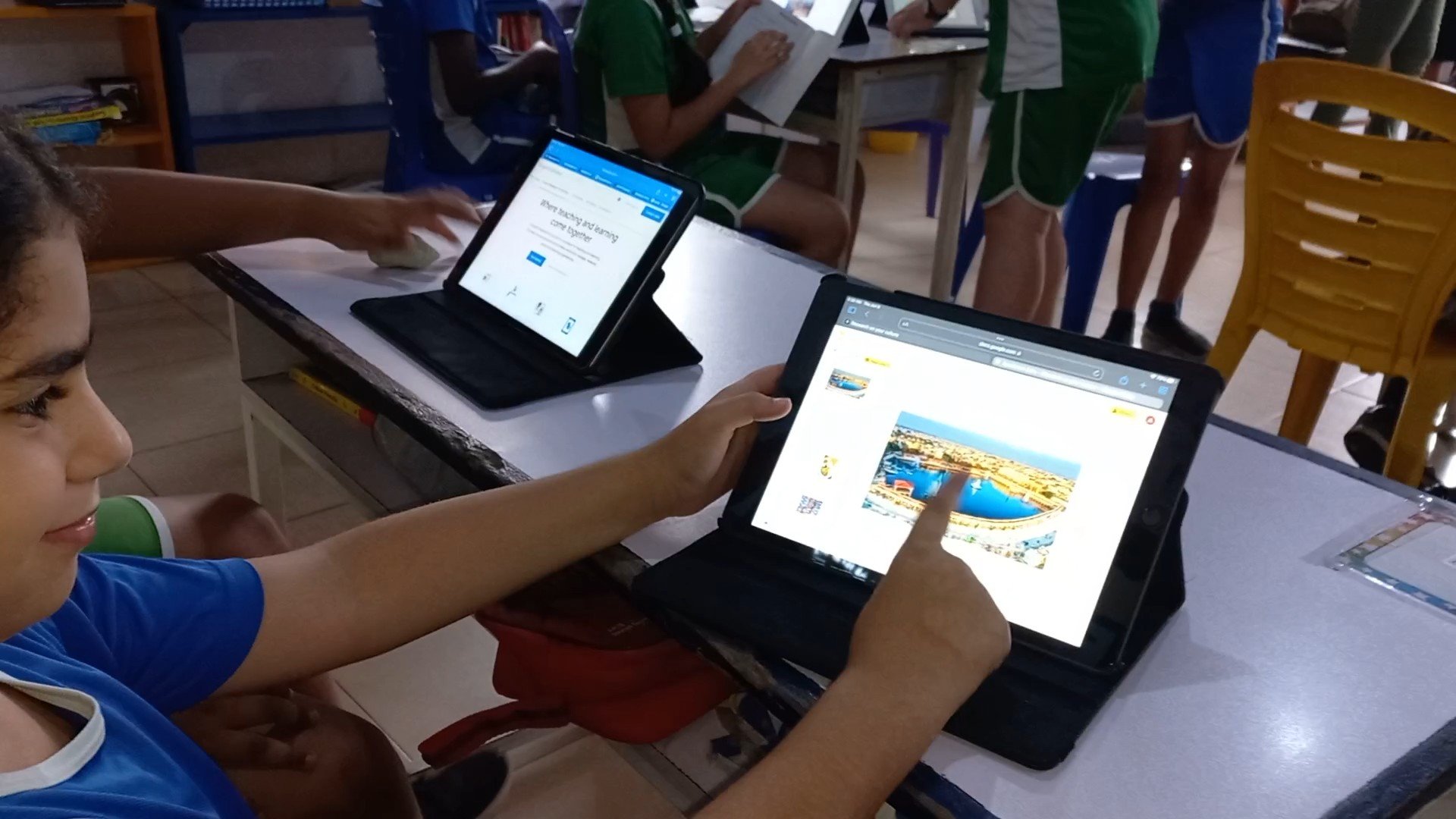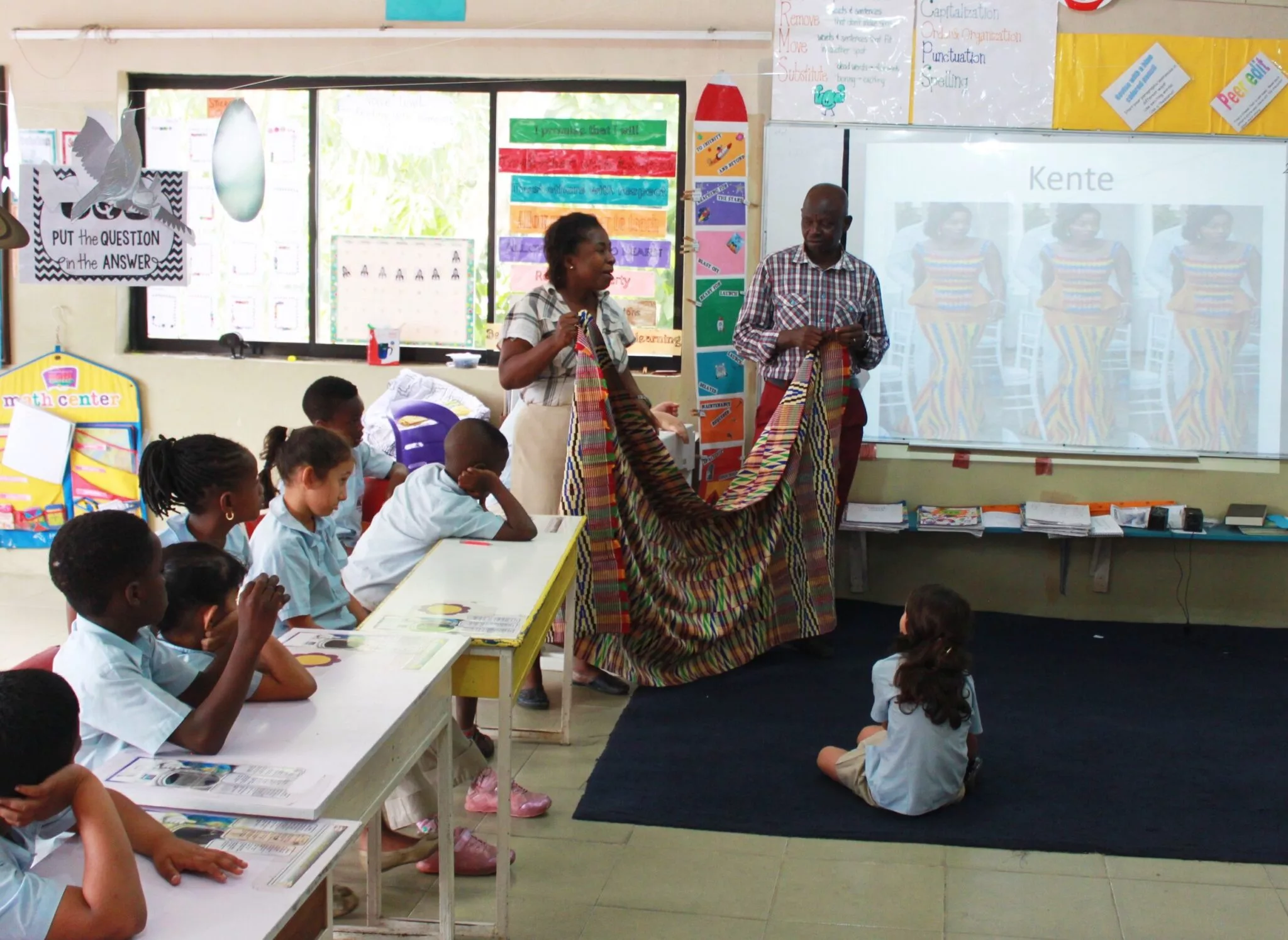Welcome to American Christian Academy
The Elementary school consists of Lower Elementary (1st-3rd) and Upper Elementary (4th-5th). The curriculum is international in outlook, but retains a local relevance. It is created for an international student body and avoids biases. The Elementary school curriculum, which is adapted from the United States’ Common Core State Standards, is designed to provide comprehensive and appropriate instruction to all students from first to fifth grade.

Acknowledging that reading is the bedrock of learning and a channel to access the world, 100-120 minutes of the daily schedule are dedicated to teaching literacy. Using the A-Z levelled reading program, teachers track students’ oral reading fluency and comprehension level. With the data, they provide necessary interventions to ensure that all read at or above grade level. In addition, with the Institute of Excellence in Writing (IEW) curriculum, students are guided to produce a variety of creative essays, which they develop from their keyword outlines.

Within the literacy period, for 1st to 4th grade, teachers use Daily 5 strategies that enable children to be independent on reading and writing literacy tasks. Students are taught behaviors for the tasks and trained to build stamina for independence, while the teacher works with individual students and smaller groups.
In addition, students have the opportunity of checking out books from the Main School Library stocked with a collection of approximately 16,000 volumes, and a team of caring and supportive staff.
In addition, students have the opportunity of checking out books from the Main School Library stocked with a collection of approximately 16,000 volumes, and a team of caring and supportive staff.
Math by Myself
Math Writing
Math with Someone

In Math and English, 4th – 5th grade students take weekly practice tests in preparation for the yearly standardized tests. These tests provide necessary information on where students stand on critical skills and help to guide differentiation plans.

Teachers are responsible for students with a wide range of learning abilities. Therefore, they apply instructional methods and use a balanced mix of teaching styles that work well in diverse classrooms engaging gifted students as well as children with academic challenges.
